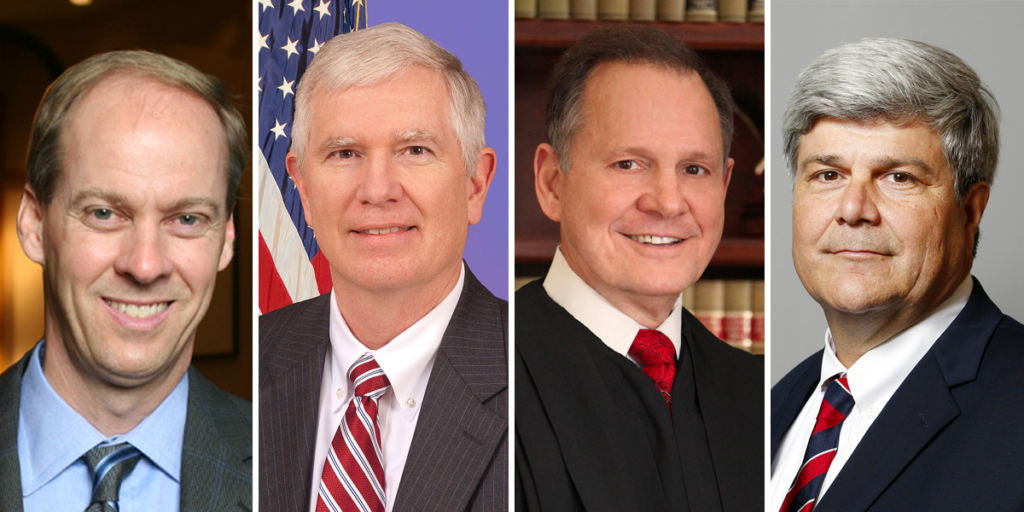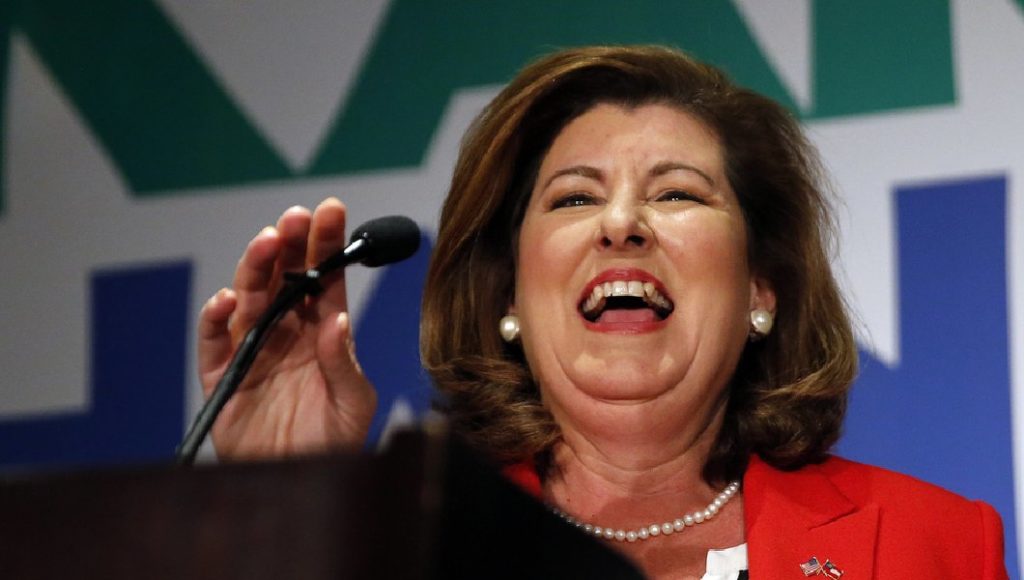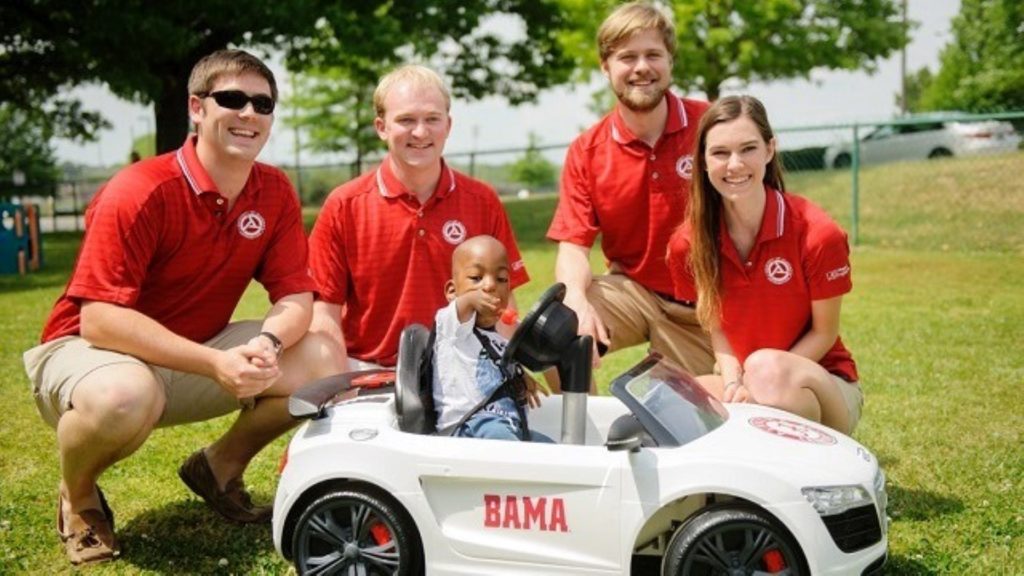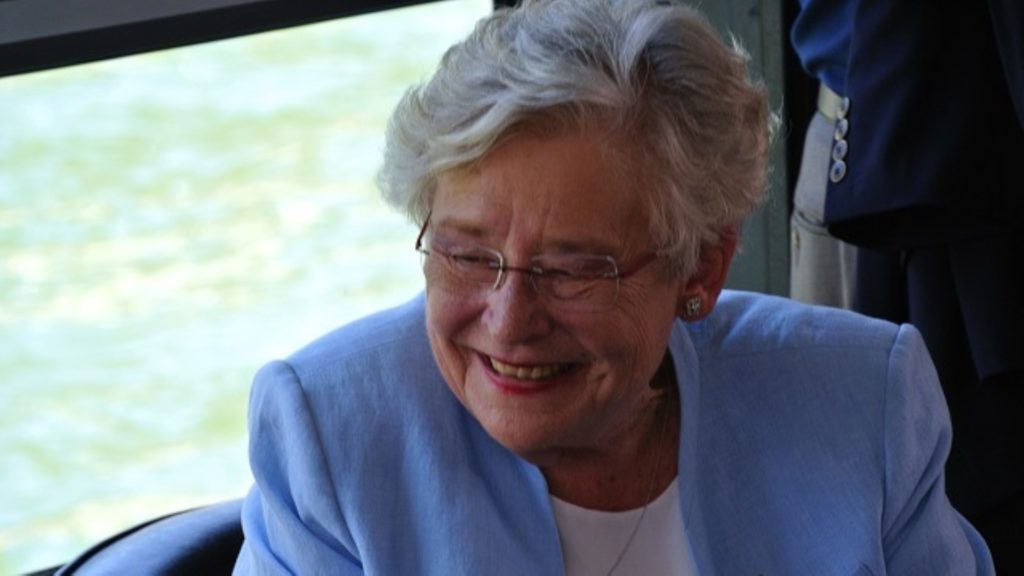Donald Trump returning to Iowa, where he may find remorseful independent voters

Iowa independents who helped Donald Trump win the presidency see last year’s tough-talking candidate as a thin-skinned chief executive and wish he’d show more grace. Unaffiliated voters make up the largest percentage of the electorate in the Midwest state that backed Trump in 2016, after lifting Democrat Barack Obama to the White House in party caucuses and two straight elections. Ahead of Trump’s visit to Iowa Wednesday, several independents who voted for Trump expressed frustration with the president. It’s not just his famous tweetstorms. It’s what they represent: a president distracted by investigations into Russian meddling in the 2016 election and a court battle over his executive order barring refugees from majority-Muslim countries at the expense of tangible health care legislation and new tax policy. “He’s so sidetracked,” said Chris Hungerford, a 47-year-old home-business owner from Marshalltown. “He gets off track on things he should just let go.” And when he does spout off, he appears to lack constraint, said Scott Scherer, a 48-year-old chiropractor from Guttenberg, in northeast Iowa. “Engage your brain before you engage your mouth,” Scherer advised, especially on matters pertaining to investigations. “Shut up. Just shut up, and let the investigation run its course.” Scherer said he would vote again for Trump, but pauses a long time before declining to answer when asked if he approves of the job the president is doing. Cody Marsh isn’t sure about voting for Trump a second time. The 32-year-old power-line technician from Tabor, in western Iowa, says, “It’s 50-50.” “People don’t take him seriously,” he said. Unaffiliated, or “no party” voters as they are known in Iowa, make up 36 percent of the electorate, compared with 33 percent who register Republican and 31 percent registered Democrat. Self-identified independents in Iowa voted for Trump over Democrat Hillary Clinton by a 13-percentage-point margin last year, according to exit polls conducted for The Associated Press and television networks They helped him capture 51.8 percent of the overall vote against Clinton. Nationally, exit polls showed independents tilted toward Trump over Clinton by about a 4-percentage-point margin in November, but an AP-NORC poll conducted in June found that about two-thirds of them disapprove of how he’s handling his job as president. In North Carolina, Republican pollster Paul Shumaker says he has seen internal polling that has warning signs for his state, where Trump prevailed last year. Independent voters are becoming frustrated with Trump, especially for failing so far to deliver on long-promised household economic issues such as health care, said Shumaker, an adviser to Republican Sen. Richard Burr. Inaction on health care and any notable decline in the economy will hurt Trump’s ability to improve his numbers with independents, with broad implications for the midterm elections next year, Shumaker said. At stake in 2018 will be majority control of the House. A favorable map and more Democrats up for re-election make the GOP more likely to add to its numbers in the Senate. “How the president and members of Congress move forward and address the kitchen-table issues facing the American voters will determine the outcome of the 2018 elections,” he said. In Iowa Wednesday, Trump will be rallying his Republican base in Cedar Rapids. Earlier this month, Vice President Mike Pence attended Republican Sen. Joni Ernst‘s annual fundraiser, where he talked about job growth and low unemployment since the start of the year, although economists see much of it as a continuation of Obama policies. Trump has only been in office five months. It’s a message the Republican establishment is clinging to, especially those looking ahead to 2018. Gov. Kim Reynolds, installed last month to succeed new U.S. Ambassador to China Terry Branstad, said last week of Iowa voters: “I think they are confident that President Trump and this administration are doing the job that they said that they would do, going out there and making America great again.” But Trump has to worry about people like Richard Sternberg, a 68-year-old retired high school guidance counselor from Roland, in central Iowa, who voted for Trump. But is Sternberg satisfied? “Not completely.” He is bothered by Trump’s proposed cut to vocational education, an economic lift for some in rural areas. “We, especially in Iowa, need those two-year technically trained people,” Sternberg said. More broadly, Trump needs to act more “presidential,” he said. “Trump speaks before he thinks,” Sternberg said. “He doesn’t seem to realize what the president says in the form of direct communication or Twitter carries great weight and can be misconstrued if not carefully crafted.” Republished with permission of The Associated Press.
Luther Strange introduces bill to close Obama-era 2nd Amendment loophole

Taking action to protect Second Amendment rights from unwarranted executive intrusion, Alabama Senator Luther Strange on Wednesday introduced the Protecting the Second Amendment Act. The bill would amend the Gun Control Act to nullify generalized, routine, or ongoing reporting requirement on lawful gun owners based on geographic location or sales records of multiple long guns, and prohibit future executive action against them. “The Obama administration demonstrated time and again a disturbing willingness to bypass the separation of powers and disregard Congress as a Constitutional watchdog,” explained Strange. “Had the restrictions faced by lawful gun dealers in border states been applied to Alabama, many sportsmen, myself included, would have a difficult time practicing our hobby, and exercising our Constitutional rights. With this bill, I am proud to stand up against existing and future threats to the rights of lawful gun owners, and restore respect for the rule of law.” Under an Obama-era executive order claiming to target the flow of firearms to Mexican drug cartels, gun owners and dealers in California, Arizona, New Mexico, and Texas were subjected to additional reporting requirements on firearms above .22 caliber. The Protecting the Second Amendment Act has already received support from original Senate cosponsors, Texas-Republicans John Cornyn and Ted Cruz, and is being praised by the National Rifle Association as an important step in rolling back the full extent of Obama administration’s actions against guns. “On behalf of the NRA’s five million members, we would like to thank Senator Strange for introducing this important bill that would roll back the Obama administration’s defacto gun registration scheme,” said NRA-ILA Executive Director Chris Cox. “Senator Strange continues to be a champion for our Second Amendment right to keep and bear arms in the U.S. Senate.” “For eight long years the Second Amendment was constantly under threat by an Administration hostile to the fundamental right of Americans to defend themselves,” added Cornyn. “This bill will help roll back unilateral regulations from the last Administration targeting law-abiding gun owners, and I’m proud to join Senator Strange in this fight.”
Alabama’s GOP Senate hopefuls meet in Oxford for debate

The Calhoun County Republican Party hosted a candidate forum Tuesday night for the state’s GOP Senate hopefuls. Christian Coalition president Randy Brinson, Alabama 5th District U.S. Rep. Mo Brooks, former Chief Justice Roy Moore and state Sen. Trip Pittman were all in attendance for the Oxford, Ala. debate. “We are honored to have the opportunity to host this event, as this is such an important election,” Calhoun County Republican Party Chairman James Bennett said. “This is a great accomplishment for our local party and for our community.” Moderated by radio personality Jay Holland, the debate featured panelists in diverse areas of expertise who queried the candidates throughout the evening, as they jockeyed for support from the crowd. Panelists included: Former Congressman Dr. Glen Browder Professor Emiratis Jacksonville State University. Lt Colonel Brian Reed, U.S. Army Retired, former faculty member West Point Dr. William Lester, Professor Political Science, Jacksonville State University, Fulbright Scholar and published author Larry Huff, Executive Editor of Yellowhammer News, statewide online publication Sen. Luther Strange, who was appointed to the seat in February following its vacancy when Jeff Sessions accepted the U.S. Attorney position, was invited to the forum but was unable to attend.
Analysis: Dem loss in Georgia underscores party challenges

Republicans just got a big argument for sticking with President Donald Trump and pushing forward with dismantling former President Barack Obama‘s health law. And Democrats are struggling to translate the energy of their core supporters into actual election victories. Tuesday night’s outcome in a special House race in Georgia was a triumph for the GOP, and the most recent and devastating illustration of the Democrats’ problems – from a weak bench and recruiting problems to divisions about what the party stands for today. Instead of a win or even a razor-thin loss by Democrat Jon Ossoff that many had expected, Republican Karen Handel ended up winning by a relatively comfortable 4 percentage point margin in the wealthy suburban Atlanta district previously held by Health and Human Services Secretary Tom Price. That followed another recent Democratic disappointment in Montana, where the Republican candidate won even after last-minute assault charges, and an earlier loss for the Democrats in Kansas. Rep. Rick Nolan, D-Minn., said Democrats are not as good on delivering a winning message to voters as they should be. “Harry Truman said it best, if you want to be Republican-lite, people will vote for the real thing every time,” Nolan told reporters Wednesday. Indeed the best news Democrats got Tuesday night was that a different special House race, in South Carolina, ended up closer than the Georgia contest even though it had drawn little national attention. Republican Ralph Norman beat Democrat Archie Parnell by around 3 percentage points in South Carolina, closer than expected and a warning sign to the GOP not to take any seat for granted. But for Democrats, having failed to unseat a Republican in four special House elections in a row despite an extremely energized base, it’s now a time for soul-searching – and finger-pointing. Ossoff ran a careful campaign and shied away from talking about Trump, and some groups on the left wasted no time in insisting that Democrats must draw brighter contrasts with the GOP. “Defeating Republicans in districts that they have traditionally held requires doing something drastically different than establishment Democrats have done before – specifically, running on a bold progressive vision and investing heavily in direct voter contact,” said Jim Dean, chair of Democracy for America. The Georgia race was the most expensive House race in history, with many millions spent on both sides. The fact that that level of investment failed to pay off with a win against a Republican candidate widely viewed as uninspiring left Democrats frustrated and dispirited heading into the 2018 midterm elections. Democrats will need to pick up 24 House seats to take back the majority. The outcome “better be a wake-up call for Democrats – business as usual isn’t working,” Rep. Seth Moulton, D-Mass., said on Twitter. “Time to stop rehashing 2016 and talk about the future.” House Democratic leaders tried to play down the loss ahead of time, pointing out that the Georgia race took place on GOP-friendly terrain, as did the other recent special elections. Rep. Joe Crowley of New York, chairman of the House Democratic Caucus, said that there are 71 districts that will be more favorable for Democrats to contest than the one in Georgia. Democrats face gerrymandered districts after the last census combined with Trump selecting lawmakers for his administration from districts the GOP should hold. “They pick people in safe and tough districts for Democrats to win,” Crowley said Wednesday. But for Republicans from the president on down, it was time to celebrate. Trump sent supporters a text message crowing, “Congrats to Karen Handel on a HUGE win in GA! Democrats lose again (0-4). Total disarray. The MAGA Mandate is stronger than ever. BIG LEAGUE.” As the results rolled in Tuesday, AshLee Strong, spokeswoman to House Speaker Paul Ryan, mused over Twitter, “Remember when they told us we’d be punished in the special elexs for following through on our promise to #RepealAndReplace #obamacare?” Indeed the string of special election wins, especially in Georgia, sent a powerful message to Republicans that they must be doing something right, even though Trump’s approval ratings are low by historical standards and the GOP has yet to notch a single major legislative accomplishment on Capitol Hill. Far from rethinking their support for Trump or their plans to undo former President Barack Obama’s health care law, Republicans seem likely to stay the course. “It shows us that people are wanting some of the things we’ve been talking about, President Trump’s been talking about – less government, more power to the folks. Tax reform. That’s the kind of things we’ve got to get done. They believe in us being better able to do it rather than the other side,” said Rep. Roger Williams, R-Texas. And as for the Democrats, they, clearly, are doing something wrong. What exactly it is, and whether they can fix it, will be debated in the weeks and months ahead. Republished with permission of The Associated Press.
Highly contagious citrus disease confirmed in Alabama

Citrus Greening, also known as Huanglongbing (HLB), is considered to be the most destructive disease of citrus, and state and federal officials have confirmed the disease is present in Alabama for the first time. According to a release from the Alabama Department of Agriculture and Industries (ADAI) the disease, which is caused by the bacterial pathogen Candidatus Liberibacter asiaticus, was found in leaf and insect samples at a home on Dauphin Island despite biannual surveys for the pathogen by the ADAI. Citrus greening reduces the quantity and quality of citrus fruits, eventually rendering infected trees useless. In neighbor-state Florida, citrus greening has been devastating to crops, as harvest of oranges fell from 242 million boxes in 2005 to 104.6 million boxes in 2014. The widespread of the disease was due to the fact that there is no cure. Infected trees are destroyed to keep it from spreading. The ADAI, along with the USDA Animal Plant Health Inspection Service (APHIS) and the U.S. Department of Homeland Security Customs and Border Protection (CBP), will be conducting a delimiting survey to determine the extent that the pathogen may have spread. If the disease is limited to only a few trees, steps will be taken to eradicate the disease. Officials have begun the process to halt the movement of citrus plants from the area. With the confirmation of citrus greening in Dauphin Island, federal plant officials will seek to establish a citrus greening quarantine in Mobile County. Alabama agriculture officials have also indicated the state intends to take action to establish a parallel quarantine. The dual action makes it possible for federal regulators to hold the quarantine for CG only for those counties in Alabama in which the disease is present.
Personnel note: Alabama Policy Institute announces staff additions, changes

On Tuesday, the Alabama Policy Institute announced several new hires and changes in staff positions as they prepare to move into the 2018 legislative session and election season. “In order to meet this high demand, API leadership spent the last year carefully and thoughtfully seeking the best individuals with the passion to fight for Alabama to join the API team,” said a press release. Below are the staff additions, changes:
Breaking down the results of the Georgia special election

The last month has been filled with media coverage of yesterday’s special election in Georgia’s 6th Congressional District. One would think this was the most significant race in the history of Congress. Why has this race dominated the media, while another special election in neighboring South Carolina has received almost no attention? Both the Georgia and South Carolina districts feature resignations by Republicans Congressmen who took positions in the Donald Trump administration. In Georgia, Tom Price resigned to become Secretary of Health and Human Services, while in South Carolina, Mick Mulvaney gave up his seat to become Director of the Office of Management and Budget. One reason for the attention on the Georgia race may be that the seat was previously held by Newt Gingrich before Price took over, and it has been a Republican district since 1979. That hardly explains the attention on the Georgia district and the neglect of the South Carolina district. Many viewed the election as a referendum on the Trump administration. Mitt Romney won the district by 23 percent in 2012; Trump won by only 1.5 percent in 2016. Many saw this as an opportunity for Democrats and a sign of Republican dissatisfaction with Trump as party leader. The Democratic candidate in District 6 was Jon Ossoff, a 30-year-old political activist who did not even live in the district. Although the Constitution does not require House candidates to live in the district where they run, not doing so is usually a fatal blow. Handel constantly reminded voters that Ossoff could not vote in the election because he did not reside there. Ossoff raised over $25 million for his campaign, and his Republican opponent, Karen Handel, raised a similar amount making this the most expensive House race in congressional history. Conspicuously lacking was any discussion, especially by Democrats, of the corrupting influence of money in congressional campaigns. The media focused great attention on Ossoff, but comparatively little focus on his Republican opponent Handel. We knew that Ossoff worked for a number of Democratic causes and candidates, and considered himself to be a progressive. Ossoff had the backing of the progressive establishment, including John Lewis, an icon in both congressional and civil rights history. The lack of focus on Handel may be due to the fact Ossoff received 48 percent of the vote in the blanket primary, compared to only 20 percent for Handel. It should be remembered that Republican candidates collectively received 51 percent of the primary vote. We also know that the Ossoff campaign had 12,000 volunteers, a number seldom reached by statewide candidates. He was clearly a political juggernaut, as his $25 million dollars in campaign funds demonstrated. During the campaign, one of the candidates posted on their website that the country needs to “cut the wasteful spending. Reduce the deficit so the economy can keep growing.” The site also suggested that the minimum wage be adjusted “at a pace that allows employers to adapt their business plans.” The above policy pronouncements sound like something from Herbert Hoover, Ronald Reagan or Handel. They were actually from Ossoff. Hardly progressive sentiments. Did Ossoff’s attempt to moderate his progressive views actually “turn off” progressive voters? Republican strategy was to tie Ossoff to Nancy Pelosi, a common strategy, but one that many felt was no longer effective. One ad asked voters to “Say ‘No’ to Pelosi’s ‘Yes Man.’” Another ad called Ossoff a “rubber stamp for Pelosi’s failed agenda.” Ossoff lead by as much as 7 points only a month ago and never trailed Handel until the day before the election when she led by a single point. The polls indicated that Ossoff’s support came from voters from 18 to 64, where he lead by 8 to 15 points; Handel led among voters over 65 by a margin of 62 to 36. Males supported Handel 52.6 to 45.7 percent while women supported Ossoff by almost exactly the same margin. White voters preferred Handel 55.8 to 43.2 percent while African-Americans favored Ossoff 88.7 to 9.4 percent for Handel. Why did Handel win and what does it mean? There are several reasons why Handel won and Ossoff lost. Perhaps most damaging was the outsider label, which effectively damaged the Ossoff campaign. Not being able to vote for yourself in such an important campaign put Ossoff in a difficult position. Carpetbaggers in politics have seldom fared well. Another part of the outsider problem was self-imposed by Ossoff. In an attempt to negate the outsider charge, Ossoff said he lived “a few blocks outside District 6. In fact, it was found that he lived 3.2 miles outside the district. A final part of the outsider charge related to campaign contributions. Although Ossoff raised over $25 million, most of the contributions came from outside the district. He received fewer than 1,000 donations from District 6 residents, but got over 7,200 contributions from California residents. It is too early to know for sure, but I am guessing senior voters turned out at very high rates, while younger voters supported Ossoff, but turned out at a far lower rate. We cannot forget that this was a Republican district and the results reflected typical voting patterns. Democrats are clearly going to be demoralized after expecting to win this seat almost from the beginning. Ossoff did lead almost the entire campaign, but momentum is everything in politics. A seven-point Ossoff advantage a month out from the election completely vanished by election day. Neither party should read too much into the election results. A Handel victory is no more an endorsement of Trump than an Ossoff victory would have meant that Trump and the Republicans were doomed.
Capitol Hill Buzz: Marco Rubio joke-investigates Ivanka Trump hug

Sometimes all you can do is surrender to Twitter. Florida Sen. Marco Rubio probably started out his day Tuesday thinking about paid family leave, child care tax credits and other deep issues. But when Twitter went wild over an awkward photo of him leaning in for a hug with Ivanka Trump when she arrived for a Capitol Hill meeting, Rubio was smart enough to play along. The photo, taken by an Associated Press congressional reporter with an iPhone, appears to show Trump declining to hug Rubio back as the two greet one another just outside the Capitol. Twitter users dissected the seemingly awkward moment endlessly. They compared Rubio to Ralph Wiggum from “The Simpsons” when he doesn’t get a Valentine’s Day card, and to Dr. Evil from “Austin Powers” asking his son for a hug. Rubio responded in a series of joking tweets late Tuesday, announcing that he would be investigating what he termed the “alleged failed hug.” “We believe we have our own unclassified photographic evidence that will shed greater details on this incident,” the Republican senator said, adding, “We are also attempting to acquire multi-angle video which we believe will provide greater insight into this important matter.” Rubio then posted a blurry photo, taken at a different moment, showing Trump’s hand on Rubio’s shoulder as he smiles. “New photo emerges providing more insight into alleged failed hug. (Faces blurred for security purposes),” was the accompanying caption. Several minutes later that was followed up by another photo showing Trump with her hand on Rubio’s shoulder, and the caption “BREAKING NEWS: Additional photo from moments right after today’s alleged failed hug provide new details to this developing story.” Trump herself joined in Tuesday evening, tweeting: “Anonymous sources say @marcorubio planned the alleged failed hug. I have no comment (but I would have hugged him anyway!)” She then added: “Fake news! Marco is an excellent hugger.” The Associated Press stands by its photo. Republished with permission of The Associated Press.
Alabama’s Arista Aviation announces first commercial sale at Paris Air Show

Arista Aviation Services CEO Rich Enderle announced today at the Paris Air Show that his Enterprise-based company has signed a deal to sell four modified UH-60A helicopters to the International Defense and Aerospace Group LLC (IDAG). Gov. Kay Ivey joined Enderle at the Made in Alabama booth at the air show to mark the deal that enhances Arista’s growth prospects by launching a business line centered on commercial sales. “I have visited Arista Aviation on several occasions, and I’ve been very impressed with the way the company has grown and added jobs over a short period of time,” Ivey said. “It’s a shining example of an Alabama company finding success, and I believe this new chapter in its operation will bring even more of it,” she said. Arista CEO Rich Enderle joins Gov. Kay Ivey and Wiregrass EDA director Jonathan Tullos at the Made in Alabama booth at the Paris Air Show. (Made in Alabama) Arista has primarily focused on maintenance, repair and overhaul (MRO) activities since it launched operations in Enterprise in 2014. The company operates from a 65,000-square-foot hangar and has 150 employees. The transaction with IDAG represents the first commercial sale of modified Black Hawk helicopters for Arista. “With the growth in commercial sales and the growth in the government contracts we’re pursuing right now, I anticipate we’ll expand our footprint in Enterprise, nearly doubling the hangar facility and adding another 50 to 100 jobs,” Enderle said. ‘Significant impact’ As an FFA-certified Part 145 Repair Station, Arista performs maintenance and overhaul on a large fleet of rotary wing aircraft, including the UH-60 Black Hawk and the UH-1 Huey, for the U.S. government. The full-scope work includes modifications and upgrades, repairs and paint, as well as test flights. Arista CEO Rich Enderle, left, talks with Gov. Kay Ivey and Greg Canfield, secretary of the Alabama Department of Commerce. (Made in Alabama) The aircraft in the IDAG transaction were acquired by Arista through the Army’s BEST divestiture program. The aircraft, which carry a Restricted Category Type Certificate, can be used both in the U.S. and in approved foreign countries for multiple purposes including firefighting, training, utility work or search and rescue. “Since Arista came to Enterprise in 2014, it has really had a significant impact on the region, and the company’s diversification is a way to create jobs and increase stability in the operation,” said Jonathan Tullos, executive director of the Wiregrass Economic Development Authority. “We look forward to seeing Arista continue to grow, and we think the future is bright.” This story originally appeared on the Alabama Department of Commerce’s Made in Alabama website. Republished with permission of Alabama NewsCenter.
Outreach overdrive: University of Alabama robotics team goes the extra mile for young student

For the past eight years, the University of Alabama’s Astrobotics team has fared well in the various categories of NASA’s annual Robotic Mining Competition. But while it placed first in areas such as team spirit, presentation, communications, mining, autonomy and even first overall for four years, the outreach award proved to be elusive for this competitive team. After not placing in the outreach category last year, the team redoubled its efforts this year. Four members of the 60-person team didn’t just meet the criteria by conducting meaningful outreach to engage others in science, technology, engineering and mathematics (STEM); they decided to go a bit further by changing one boy’s life. Justin is a 5-year-old at the University of Alabama’s RISE school, which works with children with physical disabilities. He was born with a rare condition that resulted in shortened limbs. Justin cannot walk. To get around, he must roll or be pushed in a stroller. Enter Astrobotics. Four team members saw an opportunity to stretch their talents beyond a robotic vehicle fit for Mars — providing Justin with a whole new level of independence in the form of a small car customized to his needs. “From the first time we met Justin, we quickly learned several things,” team member Joseph Kabalin said. “One, he is a very bright kid that could learn to drive the car if we gave him the means to do so. Two, no matter what, we had to make the car work for him, because from the first time we met him he was constantly smiling and excited about the car. And three, we knew that no matter how much we personally gained from this project, nothing could compare to what Justin would gain once we gave him his new car.” The University of Alabama Astrobotics team celebrates its recent win in NASA’s Robotic Mining Competition. (Contributed) The team spent seven months working with Justin and his classmates to develop the control panel, which included a joystick and two push buttons he could easily reach. Team members outfitted an off-the-shelf battery-operated car with these controls, upgraded the battery to provide a longer charge during playtime and even included a parental control system that allows his parents or teachers to remotely control the vehicle from their smartphones. In April, the four members of the robotics team who’d worked on the project presented Justin with a means of independent mobility: an Alabama Audi. Justin now is cruising everywhere in style and, more importantly, on his own. It’s all thanks to the engineering spirit of one team not just looking to win a competition — which it did, finally taking home first place in the outreach category — but looking to make a difference. “Of all the senior projects we had the opportunity to work on, this project was by far the most meaningful and rewarding project we could have chosen. We were given the chance to work with an incredible young boy and the opportunity to change and improve his life through our work,” Kabalin said. This story originally appeared on the nasa.gov website. Republished with permission of Alabama NewsCenter.
Governor talks Alabama aerospace growth at Paris Air Show

Gov. Kay Ivey and the Alabama team in France for the Paris Air Show connected with aerospace industry leaders at an exclusive gathering sponsored by a partnership that promotes the Gulf Coast aerospace cluster for long-term growth. The Aerospace Alliance’s event in Paris brought together delegations from Alabama, Mississippi, Florida and Louisiana with invited guests from aerospace companies and government agencies on the eve of the industry’s premier trade show. Ivey is leading an Alabama delegation at the Paris Air Show that includes business development specialists, government officials, university representatives and others. Gov. Kay Ivey speaks with Opelika Mayor Gary Fuller at the Aerospace Alliance event in Paris. (Made in Alabama) The Aerospace Alliance cruise on the River Seine gave Ivey her first chance on the Paris Air Show mission to talk business with high-level executives in the field and share her commitment to supporting aerospace industry growth in Alabama. Made in Alabama caught up with Ivey to capture her thoughts on what she wants the team to accomplish at the 52nd installment of the Paris Air Show, which started Monday at Le Bourget Airport. Made in Alabama: Why is it important for Alabama to be at the Paris Air Show? Gov. Kay Ivey: The aerospace industry in Alabama is thriving – and we want to see even more growth in this vital sector. At the Paris Air Show, we’ll get a chance to talk with many industry decision-makers in private meetings, telling them Alabama is open for business. It’s a perfect opportunity to tell them about our advantages. To make sure Alabama remains a leader in aerospace, we must be strategic and work on building the relationships that will bring more jobs and investment to the state. The Paris Air Show is the best place in the world to do that. MIA: What are your goals for the Paris Air Show mission? Ivey: The primary mission of Alabama’s economic development team at the Paris Air Show is to promote the state to aerospace companies from around the globe. I want to personally share with the leaders of these companies my commitment to make Alabama the ideal location for them. Recruiting companies like Boeing, Airbus, Lockheed Martin and GE Aviation has made Alabama a force in the aerospace industry. In Paris, we’ll be working hard to position Alabama for a new wave of growth. Aerospace is lifting off in Alabama, and we have to make sure it continues climbing. Arista Aviation CEO Rich Enderle talks with Alabama Gov. Kay Ivey at the Paris Air Show. (Made in Alabama) MIA: What specific messages will you convey at the Paris Air Show? Ivey: That’s easy. Alabama has a rich history in aerospace, going back to the Wright Brothers, who set up a flight school in Montgomery more than a century ago. Rocket scientists and engineers at NASA’s Marshall Space Flight Center in Huntsville made the moon landing possible. We have a great heritage. Today, Alabama has everything an aerospace company needs to succeed. We have the skilled workforce and top-rated training programs. We have a pro-business environment and a solid transportation infrastructure. For aerospace companies, we really have it all. MIA: Why do you want to see the aerospace sector grow in Alabama? Ivey: Aerospace in Alabama is all about high-level jobs, thriving opportunities, advanced technology and dynamic innovation. Growth in this industry will continue to propel Alabama forward, and is a sign to the world that Alabama is open and ready for businesses to invest in our state. As the former chair of the Aerospace States Association, I know how critically important this sector is across the nation. Alabama is home to 400 aerospace companies from 30 different countries. More than 83,000 Alabamians are employed in aerospace and defense. I want to see us build on the solid base of this industry. The growth prospects are good. We just need to keep working to bring home that growth – and the jobs that come with it. This story originally appeared on the Alabama Department of Commerce’s Made in Alabama website. Republished with permission of Alabama NewsCenter.
Steve Flowers: 2018 elections will be one for record books

The much-anticipated 2018 election contests have been pushed back by about three months due to the unanticipated race for Jeff Sessions’ Senate seat. This ongoing contest will occupy the news through late September. It was previously thought that June 6 would be the opening bell since fundraising for next year’s June 5 Primary could begin at that time. However, the bell will probably commence chiming in full force by Labor Day. It will be a year for the record books. The ballot will be so long that it will take most folks 15 minutes to vote. We will have an open governor’s race with at least six to nine viable candidates. That same number of folks will be in the open Lt. Governor’s race. You will have a hotly contested open race for Attorney General. There will be five seats up for election on the state Supreme Court. There will be a fight among two sitting Justices, Tom Parker and Lyn Stuart, for Chief Justice, all Probate Judges, and many Circuit and District Court Judges in the State will be running as well as all 67 Sheriffs. However, the most money will be spent on the 35 State Senate races and 105 State House seats. In recent years, special interest money in Montgomery has gravitated more than ever to legislative races. The 2018 legislative money raising could begin June 6, but the jockeying and final decision-making will be delayed by not only the U.S. Senate race. There is also a large cloud of uncertainty as to how the districts will look when all is said and done by the federal courts. In January a three-judge federal panel struck down the current district maps drawn in 2012. The three federal judges were following precedent sent down from the U.S. Supreme Court. Alabama Democrats led by the Alabama Democratic Conference and the Black Legislative Conference prevailed in what appeared to be a “Hail Mary” suit. They won at the U. S. Supreme Court level. The high tribunal’s decision said that the Alabama Republican legislature had intentionally moved Black voters who overwhelmingly vote Democratic into loaded majority-minority districts that made it difficult to form alliances with like-minded white voters. This new theory embraced by the courts advised that it muted minority voices in the political process. The court is right about that. Democratic Senators and Representatives have been run over repeatedly over the last six years by the Republican majority. They have treated them with irrelevance and irreverence. The courts told the legislature to fix the lines to suit the Court order. The Republicans ignored the Court and ran over the Democrats again in the regular session. All of the black Democrats voted against the plan. The most contentious issue was over local politics. The Republicans’ maps gave Republicans a one-seat advantage in the House and Senate delegations in Jefferson County. They brought in GOP legislators who live in the suburbs surrounding Birmingham to give them a majority in the demographically Democratic County. The Courts were essentially ignored in favor of politics. The GOP supermajority continued to use the whip handle with the Democrats. However, they are not holding the cards in this poker game. When the Court hears the case in September, the GOP plan will be discarded. The court may wind up drawing the new districts that legislators run under in 2018. The last time the courts drew the lines was in 1983. In that case, the judges sent the demographics and judicial requirements to cartography experts in New York and they fed them into a computer. The Court ordered computer drawn districts that had no regard for county line boundaries or political enclaves, much less protecting incumbents. Several GOP legislators may wake up one morning in October and see that the Courts have put them in the same districts. Therefore, most lobbyists and special interests are keeping their powder dry. They will probably not be doling out large legislative donations until qualifying time around the first of the year. The most hotly contested state Senate race will be for the Dick Brewbaker seat in the Montgomery River Region. Brewbaker is not running for re-election. Most insiders expect Senator Harri Ann Smith to retire from her Houston/Geneva Wiregrass seat. Regardless, popular Dothan mayor, Mike Schmitz, is not running for a third term as mayor and is expected to run for that State Senate seat. We will see. See you next week. ___ Steve Flowers is Alabama’s leading political columnist. His weekly column appears in over 60 Alabama newspapers. He served 16 years in the state Legislature. Steve may be reached at www.steveflowers.us.


